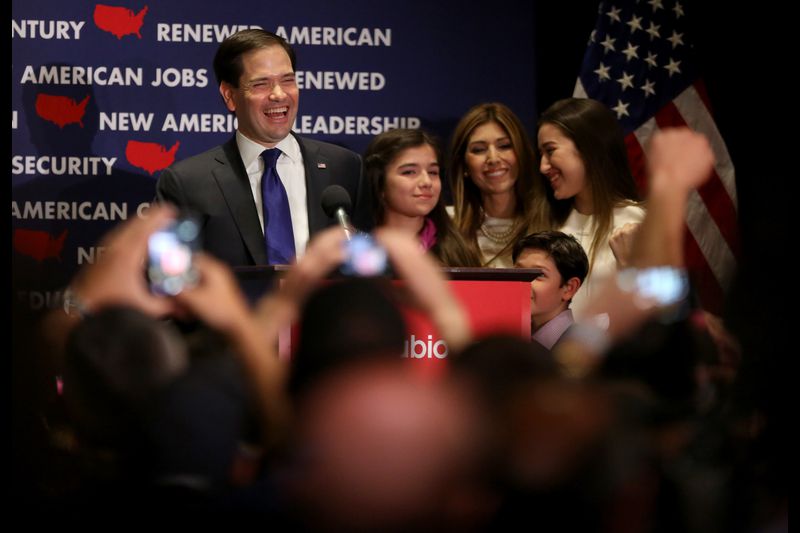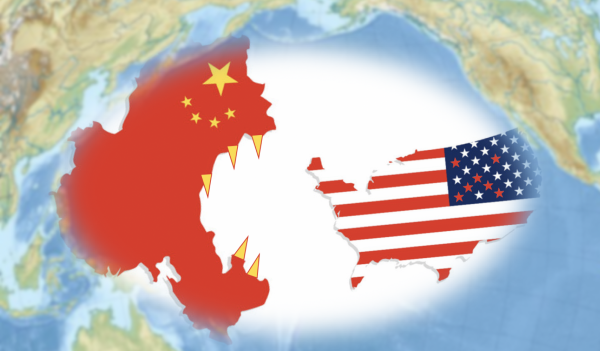Building state capacity isn’t an ism.
America Needs a New Geo-Economic Strategy

Congress Should Join the Discussion Senator Rubio Has Begun.
The opinions expressed here are those of the author alone, and not those of National Defense University or the Department of Defense.
Senator Rubio should be commended for his recent speech at National Defense University, in which he called for a United States industrial policy that deals with several issues—not only the great power competition with China, but also the lack of sufficient investment in American research and development, the growing wealth inequity in the United States, the loss of American manufacturing, and the fragility of many key U.S. supply chains.
There have certainly been, especially recently, plenty of books, articles, and op-eds on what to do about China. All this writing and editorializing is healthy and appropriate, but it is, it must be stressed, preliminary to any real change in policy. Until such thinking penetrates the halls of power—until there is a new framework and, hopefully, a new consensus within the American political order—much of this theorizing will remain conceptual wheel-spinning.
This is why Senator Rubio’s NDU speech, and his other articles, reports and speeches, are pathbreaking. So far, he is the sole major political figure, from any party, articulating these concerns in a public forum.
Where do we go from here?
Senator Rubio, I believe, was correct when he noted, following his speech, that there really is no “center of gravity” within the U.S. government—no legitimately empowered and seriously motivated group of statesmen—with the current capacity to orchestrate what I would term a U.S. “geo-economic strategy.”
The geo-economic strategy we need must be whole-of-nation. It must not only look outward toward the world, but inward, within our borders, toward rejuvenation of the American project—especially the pride and welfare of the American worker.
We may have reached another “Present at the Creation” moment, as we did at the start of the Cold War. At that time, we established internal structures, such as the Department of Defense, the National Security Council, and the Central Intelligence Agency, all oriented toward the national security threat of the Soviet Union and worldwide Communism. We also created an alliance structure, exemplified by NATO, to counter that threat.
In subsequent years the American national security model became increasingly focused on geo-politics and military strategy. Economic growth became less of a concern, in part because it was taken for granted. The end of the Cold War and the creation of the “Washington Consensus” seemed only to confirm that America’s economic supremacy would remain unchallenged. But that consensus is no longer nearly as powerful or persuasive as it once was.
Given China’s focus on economic and technological power as the base of competition, we need to go back to a more holistic approach to national security that includes economic growth and technology leadership. To do so, we must revisit the fundamentals of national security strategy and determine if a new national security paradigm is required.
The new paradigm is not and should not be “Cold War redux.”
We now live, as economist Branko Milanovic notes, in an era of “capitalism, alone.” Variants of capitalism, from autocratic state capitalism to decentralized versions such as our own, dominate the global order. We need to determine if we have the right configuration, the right national security architecture, and the right relationships between government and private entities to compete effectively in this new arena. To use the terms of Dr. Phillip Zelikow in a recent essay, we must develop the “hardware” (organizational structures) and “software” (a set of shared understandings and practices) within government to coordinate effective geo-economic strategy.
What that strategy should look like is the next major question the national security community now faces. Again, there have been plenty of prescriptions from the intelligentsia about what to do, though such prescriptions are—understandably perhaps—short on detail. But over time we can and we must develop an actual geo-economic strategy that is sufficiently nuanced and detailed.
My colleague at the National Defense University, Steve Brent, has carefully examined disruptive technologies and China’s capacity to exploit them—that kind of understanding is critical in crafting a strategy to successfully compete in the realm of such technology. A recent article by Kurt Campbell and Jake Sullivan in Foreign Affairs lays out a balanced, nuanced approach that provides a plausible roadmap for the journey ahead.
But conceptual development of strategy itself is not enough. It needs to be put into political action.
It would be helpful if other political actors, of various political persuasions, joined the discussion. While there has been some bipartisan work already, it would be helpful if such work became much more public. For example, it would be helpful if Congress created a bipartisan caucus, perhaps led by Senator Rubio, that placed country over party and began to seriously engage these issues. Such a caucus could seek to unite the American people on a forward-looking economic and national security agenda.
Senator Rubio has been criticized for his positions in the past several months, but what Senator Rubio understands, perhaps better than his critics, is that economics is a social science, a human science. Economic principles are not axiomatic, but based on social and historical understandings. And we are at the point in our history where many of our old understandings need to be reexamined. We are in need of alternatives.
Senator Rubio has done the nation a significant service by starting this discussion, both within the government and among the American people. We need others to join him.
The American Mind presents a range of perspectives. Views are writers’ own and do not necessarily represent those of The Claremont Institute.
The American Mind is a publication of the Claremont Institute, a non-profit 501(c)(3) organization, dedicated to restoring the principles of the American Founding to their rightful, preeminent authority in our national life. Interested in supporting our work? Gifts to the Claremont Institute are tax-deductible.
Don’t remake America: reinvent it.
Time is pressing to turn our tech Titanic around.
America thrives best free from market worship.
Actual policymakers have to do that.
The fix demands more than blame for Beijing.






